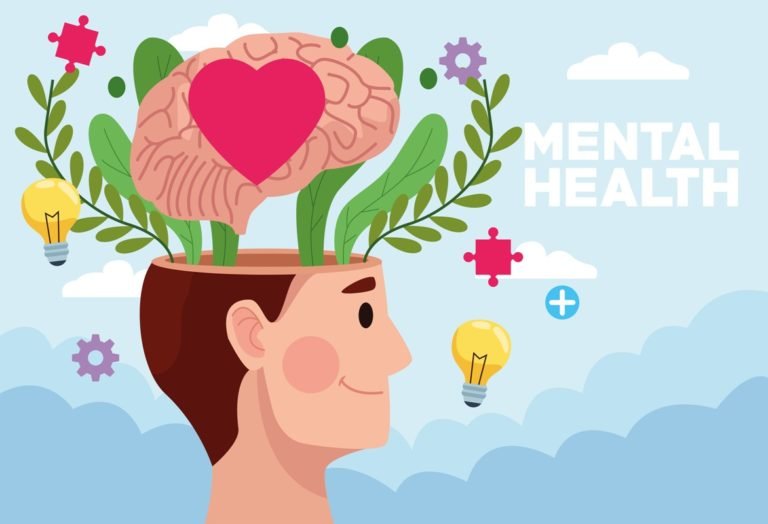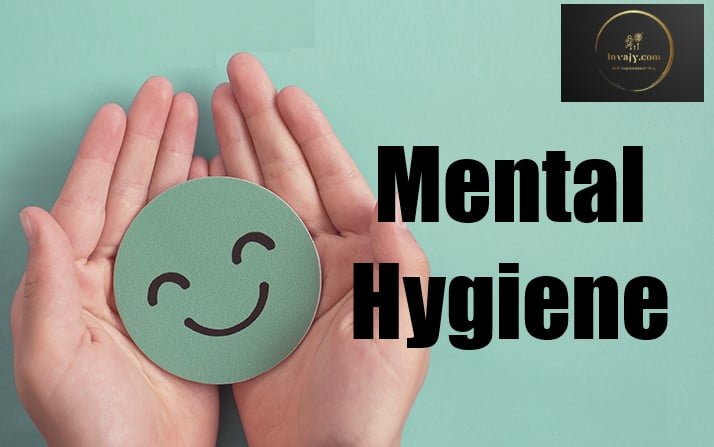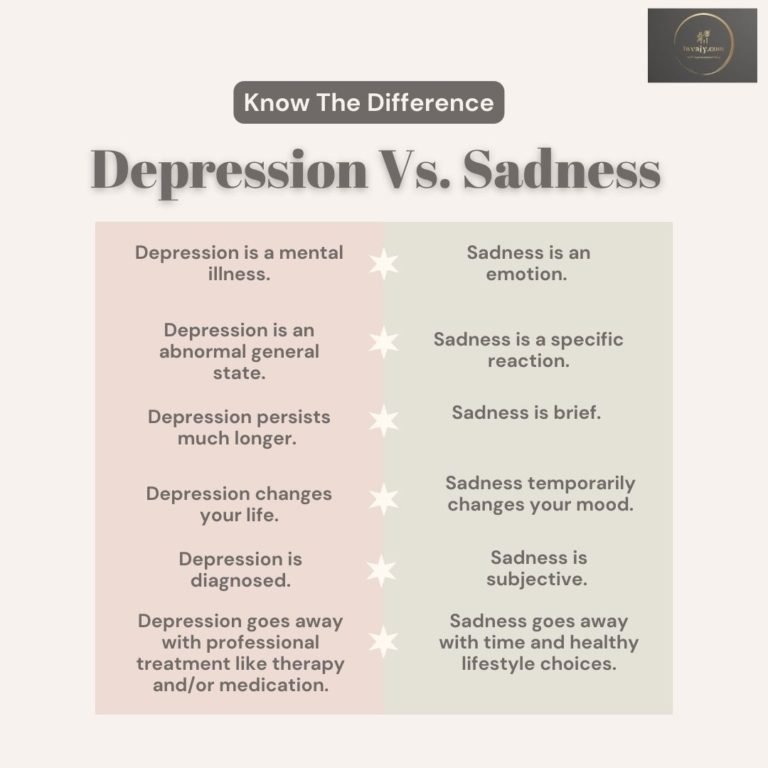5 Powerful Ways to Overcome Depression
Overcome depression with strategies like embracing it, building a support network, putting yourself first, practicing mindfulness, and setting small, achievable goals. Embrace these steps to foster recovery and well-being.

As people become more aware of the significance of mental health, the risk of misunderstanding it also becomes more prevalent. Since the movement to raise awareness about it is relatively new, some are still struggling to navigate it, be it in understanding related terms and concepts, acknowledging disorders, accepting behaviors that are out of the ordinary, and so on. Right in the middle of all this is depression. It is perhaps one of the most misunderstood and misused words, regardless of which generation is discussing it. People from past generations have mistaken it for something else entirely, and folks of today’s generation can hardly beg to differ. In this article, we will discuss about depression, it’s causes and how to overcome depression.
What is Depression?
When people think of depression, they might think of laziness, suicide, and the like. Some even think of depression as sadness or a more intense version of it. But those words barely capture the definition of depression, let alone the gravity of it. Depression is actually more complex.
It is classified as a mental health condition that generally involves feelings of demotivation and sadness that, in most cases, impair day-to-day activities and that may persist for weeks, months, or even years. However, it’s not necessarily a lifelong condition. Contrary to popular belief, depression is manageable and treatable.
Depression Symptoms
It is characterized by the following:
- Sudden loss of interest and gratification in most things
- Irregular sleeping patterns (or a lack thereof)
- Persistent feelings of worthlessness, sadness, or grief
- Suicidal ideations or any form of self-harm
- Self-deprecating behavior
Dealing with depression is daunting, and it can sometimes be confusing. Some who aren’t clinically diagnosed but who exhibit symptoms of it may internalize these symptoms and assume that they have always been like that. This is extremely problematic, as it could lead to denial, or worse, a refusal to get a clinical diagnosis.
Getting a proper diagnosis can help both the person and their clinician draft a treatment plan and a prognosis, which is typically the general approach to all mental conditions.
What causes depression?
People may get depressed due to a myriad of factors. Some are rooted in childhood experiences, some are genetically and biologically predisposed, and others are due to traumatic events such as a breakup, the loss of a loved one, and many others.
It’s important to understand that avoiding the known causes of depression doesn’t guarantee that a person won’t have it. If anything, avoidance can lead to an entirely separate disorder or worsen the severity of the person’s depression.
People should know, acknowledge, and accept that at the front and center of depression—or any mental condition for that matter—is human emotion. Feelings, emotions, dispositions, moods, and the like are vital parts of human existence; therefore, avoiding them is unnatural.

How can you overcome depression?
Knowing the causes of depression can, of course, help the scientific community in searching for more effective interventions that are research- and evidence-based. But spreading awareness on how to manage depression or its early onset is also important.
If you think you have depression or if you’ve already been diagnosed with it, here are five powerful ways you can overcome depression.
Embrace it
You may often hear from people or read in articles that accepting a mental disorder is the first step to healing or that denying one’s negative feelings can be unhealthy, as it could worsen depression or kick-start its onset.
In respect to these types of rhetoric, acceptance is indeed the first step to healing. Knowing that you have the symptoms and understanding what to do with them can help you acknowledge that you need help.
Recognizing your need for help and support will guide you in navigating your feelings better. It can help you distinguish all the unhealthy habits you have, thus giving you the chance to break them sooner or later.

In addition, accepting that you have depression can empower you, as you will come to understand that being sad or depressed doesn’t make you weak. As you learn more about your condition and the symptoms that may come with it, you will realize that these recurring feelings of worthlessness don’t define your value.
Accepting this side of you, coupled with embracing all your good points, can help curb the unnerving feeling that depression usually brings. It can help you better understand that, like a common cold, what you have is treatable and doesn’t make you less of a person.
Get a solid support group
Although depression can make you feel lonely, you’re not. All kinds of help from different kinds of people are available. Ensuring that you’re surrounded by the right people can help you overcome depression in a much better than you would, if you isolated yourself.
Depression can make you do things that will further reinforce the worthlessness and persistent sadness you feel. This is why depression can make you feel trapped—it makes you do things that will make you feel worse than before; thus ensnaring you in a cycle of inadequacy.
That’s why an important component of getting help is surrounding yourself with people who remind you regularly of your worth and who can patiently stick by you through all your episodes. These people can be your friends, your family, your significant other, or even your therapist. These are people who love and accept you unconditionally, and who can see past the negative notions you have of yourself.
Continue to do things
In addition to the suggestion above, you should try to continue doing things in spite of what your mind is telling you. Depression brings a drastic loss of motivation, and its severity changes daily. On some days, you may feel motivated, but there may be more days where you aren’t. Despite that, try to go on with your life.
Without the motivation to fuel you, it’s going to be difficult. Even getting out of bed may feel burdensome. But again, make an effort to get up and do something. It doesn’t need to be something major. If anything, accomplishing minor tasks such as brushing your teeth or washing your face can be better for you than committing to a massive undertaking that might only distress you further.
Also Read: Life Changing Positive Self-Talk
In addition, write down all the hobbies that were previously gratifying for you. Whether it’s making art, singing, or cycling, no hobby is too insignificant to list down. Once you have a list ready, try to do something small that’s related to any of the activities on the list.
You could watch videos of someone drawing, or you could window-shop for supplies related to your chosen hobby. Any of these small tasks could light up a spark inside you. This could help you feel motivated again. It’s going to be grueling, and you may not be able to do this every day; but it’s going to be worth it.
However, if these activities fail to motivate you, remember not to be discouraged. After all, depression isn’t an easy thing to beat. You could choose to continue trying every day until you succeed; or you could look for a new hobby that might inspire you.
Set goals
Setting goals is a vital component of any therapeutic and clinical intervention. Goals are essentially ‘save points’ or checkpoints; they allow both you and your clinician to know where you are and where you should be next. However, setting goals shouldn’t only be in therapy; you can also set goals on your own.
When it comes to setting goals, aim for tasks you can easily do without having to exert so much effort. It’s important to set goals since it can give you a sense of worth and accomplishment. Doing small tasks such as brushing your teeth or folding the laundry can remind you that you’re still capable of accomplishing things.
These goals don’t need to be grand. Your wins are yours, and they are important. Having that sense of achievement can help you motivate yourself, even if only slightly. Besides, all your small wins can contribute to bigger ones in the future.
Also Read : Goal quotes
In line with that, setting goals can help you decide what to do next. For instance, if you’re able to fold three sets of laundry this week, you can up the ante next week by not only folding them but also ironing some of them. No matter how seemingly insignificant these tasks may be; having a tangible grasp of your capabilities is extremely vital if you want to overcome depression.
For further motivation, you could also keep a notebook wherein you can log your wins and accomplishments. You can write down things you’ve done and the methods you used to achieve them. You can also add things like plans, long-term goals, or even things you don’t plan on doing anymore.
It may be helpful for you to use the SMART acronym, ensuring that you set goals that are specific, measurable, attainable, realistic, and time-specific.
Put yourself first
Depressive symptoms have many faces, but in general, they often make you feel small. They can have you convinced that you don’t matter and that you’re not worthy of love. With these kinds of feelings, you may sometimes feel that you’re a burden; hence, you’ll feel compelled to do more than is asked of you when it comes to your interpersonal relationships.
But you should remind yourself that you don’t have to. You don’t need to do things you don’t like just so you don’t feel left out. And, you don’t need to stay in toxic friendships or relationships just because you’re afraid of being alone. While being surrounded by people is important to overcome depression; staying with those who aren’t healthy for you will just make it worse.
Acknowledging your symptoms and being with people who understand and accept them unconditionally is the right way to do it. There will be times when you don’t feel like talking to anyone at all, and that’s fine. True friends will know and will recognize that. You won’t lose friends by staying off the grid for days or even weeks.
It’s true that companionship is important, but your needs and preferences should also be your top priority. Do things at your own pace and not how others tell you to do it. You’re entitled to feel whatever you feel about certain events, people, and even yourself. Robbing yourself of that entitlement is exactly what makes depression potentially harmful.
In a Nutshell
Mental health is just as important as physical health. No matter how much others undermine and downplay its significance; it’s important for those with mental health conditions to be aware of their situation and how to manage it. If you’re struggling with depression, the tips mentioned above may be able to help you to overcome, though you shouldn’t discount the importance of getting professional help as well.







Very informative article! Dealing with depression is not at all easy, but these tips are quite helpful.
very informative blog, before reading the blog, I have many questions on my mind. now everything is cleared, looking Forward to more Blog Like this.
For 15-30 minutes every morning and evening, meditate. It’s essential to meditate. If you can, meditate in a quiet spot, but if you don’t have one, that’s fine too. Meditating is not hindered by noise.
For a minute or so, sit quietly, close your eyes, and do nothing. Thoughts will arise, and that is just fine. It’s normal to have thoughts while you’re meditating. It helps in decluttering your mind.
Meditation is something that everybody can do. It’s easy to accomplish and doesn’t cost a lot of money, and it doesn’t require any special equipment.
Such an important topic. I appreciate your thoughtful examination. While it’s not technically a medical condition, depression can have very real effects and requires proper care for a healthy recovery.